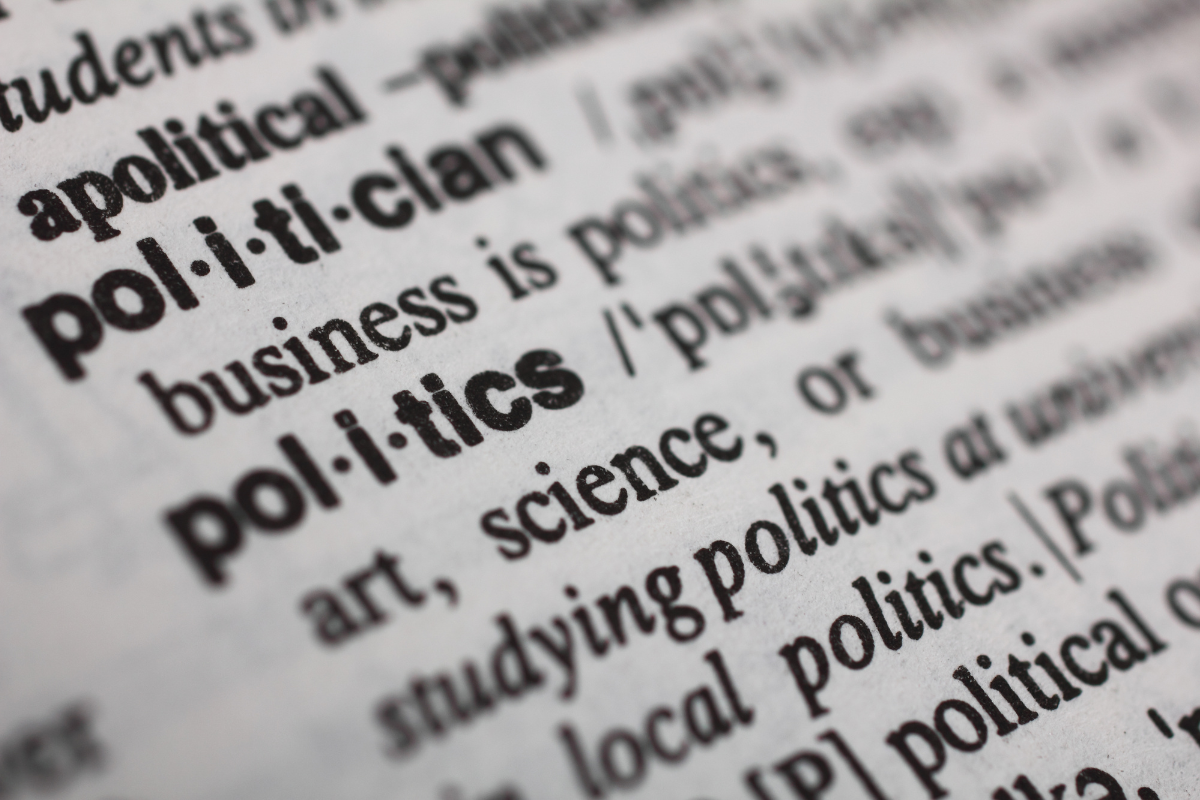Depending on what you consider politics, companies have been including them in their advertisements forever. As far back as the 1950s, advertisements took advantage of what was accepted. While these ads weren’t seen as political at the time, they reinforced harmful beliefs, which we’d call political today. That isn’t to say there wasn’t a fight against these beliefs at the time. But, unlike the modern day, the fight was only happening on the fringes of society, like with punk music. It was almost unheard of for mainstream companies to side with marginalized communities back then. So taking a traditional or progressive stance is now seen as political, regardless of your side. Are you fighting for change or to keep things as they are?
What this means is that politics can exist at any level in a company. Whether it’s the media and products they put out or the company’s values. But the question we’re asking here is, are they good for a company? It depends on the type of politics we’re talking about.
Companies should be able to have a brand. Where they stand on social issues can be a part of that brand. Whether it’s a progressive or traditional point of view, discussing these topics from various angles is important. However, I don’t believe we should be fostering harmful commentary from either side of the argument.
Putting politics into your media
Films, video games, music and advertisements. These are all examples of media. When a company takes a political stance through the media they produce, there’s a risk that it might alienate consumers. But there are many companies that don’t care if they do. Let’s face it, there’s a lot of media out there, and there’s no way you’ll please everybody.
As an example, let’s talk about queer representation. You risk alienating members of your audience if you include LGBTQ+ characters. But if you refuse to do it, then you risk offending a more progressive audience. Either way, people could start boycotting your company through social media. As a compromise, you could make it subtle enough that queer people notice it if they know what to look for. This leads to it becoming normalized but not overt.
There’s even more of a debate for this when we see LGBTQ+ characters in children’s media. There are a lot of people who don’t believe that queer characters should exist in these properties.

A great example of this is the Netflix show “She-Ra and the Princesses of Power.” SRPP is a reboot of the original Mattel series that takes quite a few liberties with the world and characters. The most notable differences are the redesigns and the complete lack of He-Man. But what got the show a lot of controversy was the inclusion of various queer characters. SRPP has some of the most diverse representation I’ve seen in media, let alone a kids’ show. But of course, some people thought that the show had too much LGBTQ+ representation.
During an interview with the Digital Spy, show runner ND Stevenson stated that “it helps kids who aren’t queer develop empathy and understanding for people who might not be exactly like them.” He did this by putting homosexual couples through the same romantic motions as straight couples. But this could be something as simple as holding hands and blushing. Even then, it goes a long way toward normalization, which is good.
I am, however, against putting political views in your media when it’s used as propaganda. This goes doubly so when it comes to children. If you start pushing an ideology forward, they’re likely to believe it. This goes back to the idea of normalization I was talking about earlier. For example, the Watchtower Society has created a notorious series called “Caleb & Sophia.” The series pushes many Jehovah’s Witness beliefs on children while entertaining them. While some lessons are generally good (respecting your elders), others aren’t so great (interacting with outsiders is wrong).
While showcasing a diverse cast of characters in children’s programming is good, pushing specific ideologies isn’t. I’d make the same arguments for my own nihilistic beliefs as well. These views should be showcased, just not pushed on people in a manipulative way.
Corporate culture
While there’s still a long way to go, many companies are creating inclusive corporate cultures. Google’s CEO, Sundar Pichai, says, “A diverse mix of voices leads to better discussions, decisions and outcomes for everyone.” And he follows up on this claim time and time again by making apologies when he makes a misstep. Even if he doesn’t make those missteps, he’ll take responsibility for those that work under him. These apologies are posted publicly, allowing for more transparency. This leads to a more inclusive and comfortable working environment for his employees.

Travelling to the other side of the ocean, Studio Ghibli has taken a lot of progressive stances. During the documentary “The Kingdom of Dreams and Madness,” it’s made clear that they have a strict but inclusive workplace–especially when it comes to director Hayao Miyazaki.
Contrary to many other animation studios, Miyazaki’s team only works six days a week for eight hours a day. While this leads to a 46-hour work week, that’s small compared to other studios. For instance, A1 Entertainment had an incident in 2009. One of its employees committed suicide after working 600 hours in a single month. This sort of experience is indicative of Japanese business culture. The Japanese workforce has coined the term “Karoshi,” which is when somebody dies due to overworking. So, when Miyazaki gives his employees reasonable hours and plenty of free time, it becomes a much-needed political statement. Outside of this, he’s done everything in his power to make his workplace inclusive.
Both of these are great examples of people leading by example. It shows that inclusivity and progressive politics can lead to a better workplace. Even if it’s unintentional, the ideologies we run our businesses on affect how the public views us.
That said, many companies put up an air of inclusivity around June, which is Pride Month. While it’s appreciated, it comes off as opportunistic when it’s not a part of the company’s normal values. This isn’t like Gillette, which actively supports transgender men through its advertising. Instead, companies like Walmart only sell Pride-related items during May or June. As somebody who’s queer, I prefer when a company doesn’t take a side instead of pretending to take one when it’s cool to do so.
Companies and political parties
There are laws against political parties supporting companies in Canada and the US. But there are no laws against small companies showing support for those parties. This is why you’ll see some journalism websites like Rebel News taking a side. This becomes obvious in their media, especially during elections.
But bigger companies like Disney or Coca-Cola rarely take sides in these cases. While it’s illegal for a corporation to fund a political party in Canada, it’s not illegal in the USA. Many American corporations support political parties with money rather than media, which is both good and bad. An entity with that much money could help swing an election through sheer funding, which is bad. But the good part is that they’re not putting out any media supporting these parties. This could influence voters directly through propaganda.
In my opinion, corporations shouldn’t be allowed to support a political party by any means. This isn’t just because it could sway the tide of an election. Instead, the employees of these corporations would need to align themselves with the company’s party of choice. This could create an uncomfortable or even unsafe work environment if you don’t support the party.

And while you could say the same about a company pushing for LGBTQ+ acceptance in the workplace, it’s a bit different here. For instance, some professional athletes are choosing not to wear pride jerseys because they’d be ostracized in their home country if they participated.
Thankfully, very few companies support a specific party. And the few that take a side are open enough that you wouldn’t apply to them if your beliefs don’t align with theirs. For instance, you wouldn’t apply to work for Rebel News, a conservative outlet, if you held liberal values. The same goes for PinkNews if you aren’t at least an LGBTQ+ ally.
So where does that leave us?
Politics are strange in the modern world. What society considered normal 50 years ago is now considered regressive. And those considered sexual deviants (transgender people), have corporations supporting them now.
While it’s generally good when a company uses their influence to normalize marginalized groups, it can become problematic when used to enforce propaganda. The same can be said about how much American corporations influence American politics.
I’m glad corporations can’t fund political parties in Canada, even if it’s still happening in the USA. Regardless, with the support I’ve seen many companies provide through their media, I see a bright future peeking out from behind our divided society.






